MEPC 80/7/11: Synthesis Report of the IPCC Sixth Assessment Report and its implications for the levels of ambition and follow-up action that must be included in the IMO’s revised GHG Strategy
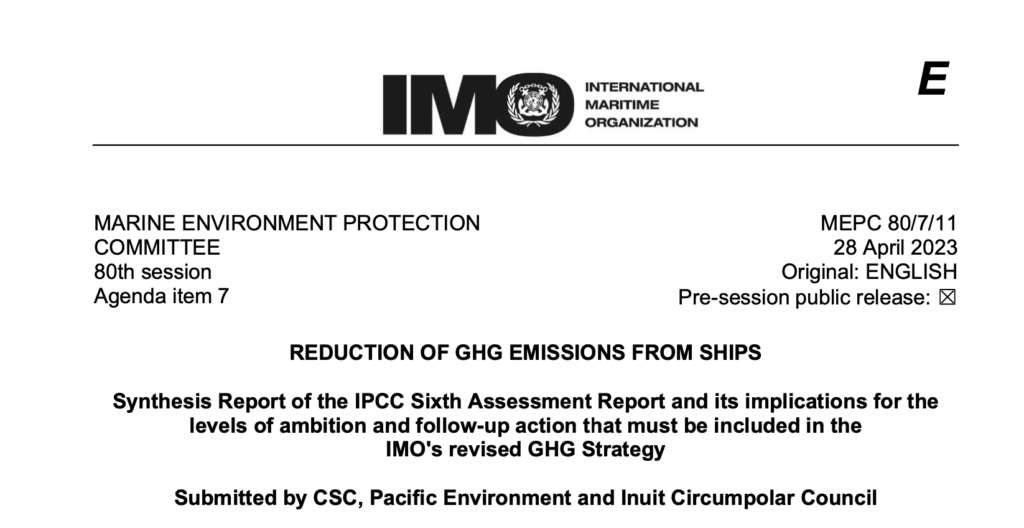
This document draws attention to the IPCC AR 6 Synthesis Report: Climate Change 2023, which was released on 20 March 2023.
As IMO Fails to Protect Arctic & Climate, Call for Governments To Ramp Up Action on Black Carbon
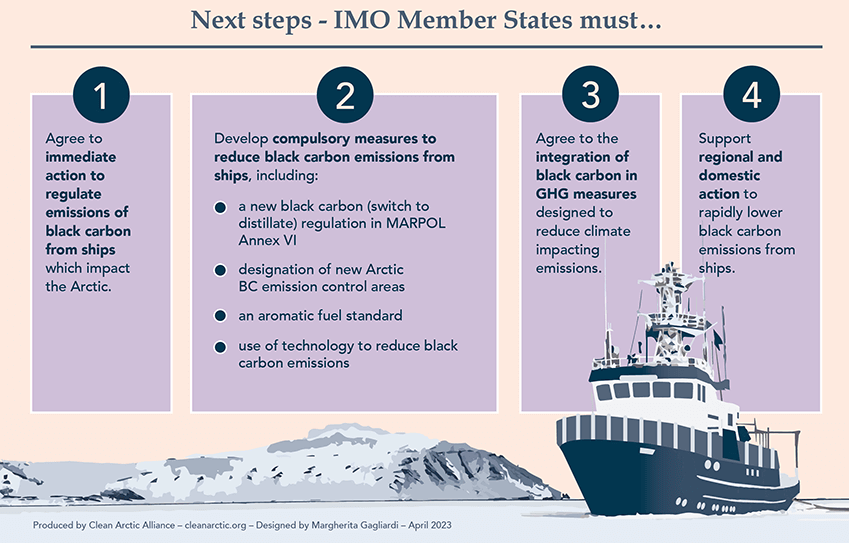
As a meeting of the International Maritime Organization’s Pollution Prevention and Response committee closed today (PPR10), the Clean Arctic Alliance denounced the IMO’s failure to progress compulsory measures to reduce black carbon emissions from international shipping on the Arctic, and called for national governments to urgently develop concrete proposals for mandatory action for IMO to consider at the first available opportunity in 2024.
Call for for Switch to Cleaner Shipping Fuel To Cut Arctic Black Carbon Emissions
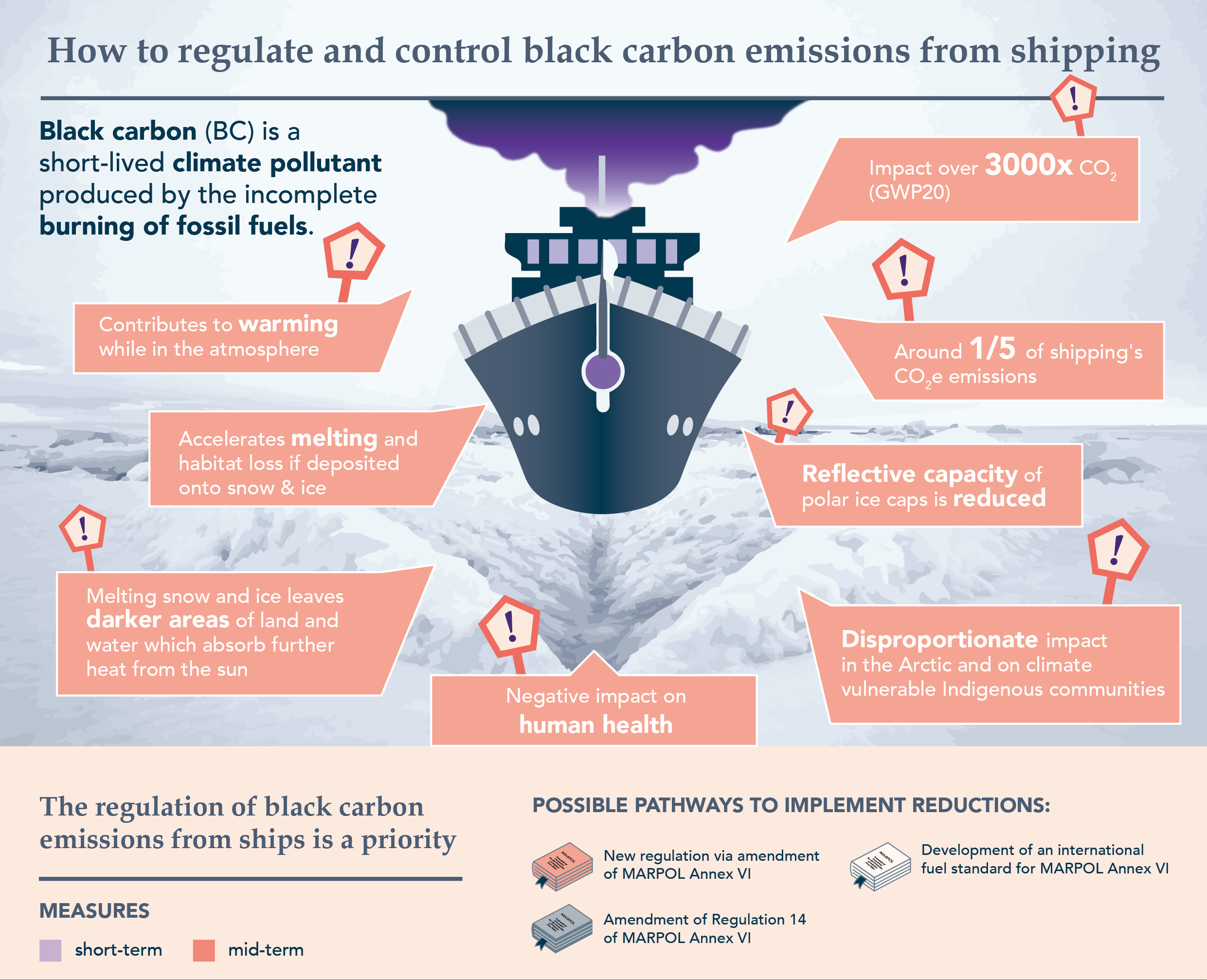
As a meeting of the IMO’s Pollution Prevention and Response committee opens today, the Clean Arctic Alliance calls for radical reduction in impact of black carbon emissions from shipping on Arctic sea and glacier ice, by putting in place a compulsory requirement for ships across the whole Arctic to use cleaner fuels by switching to distillate fuels.
Black carbon emissions from Arctic shipping: a review of main emitters and time trends
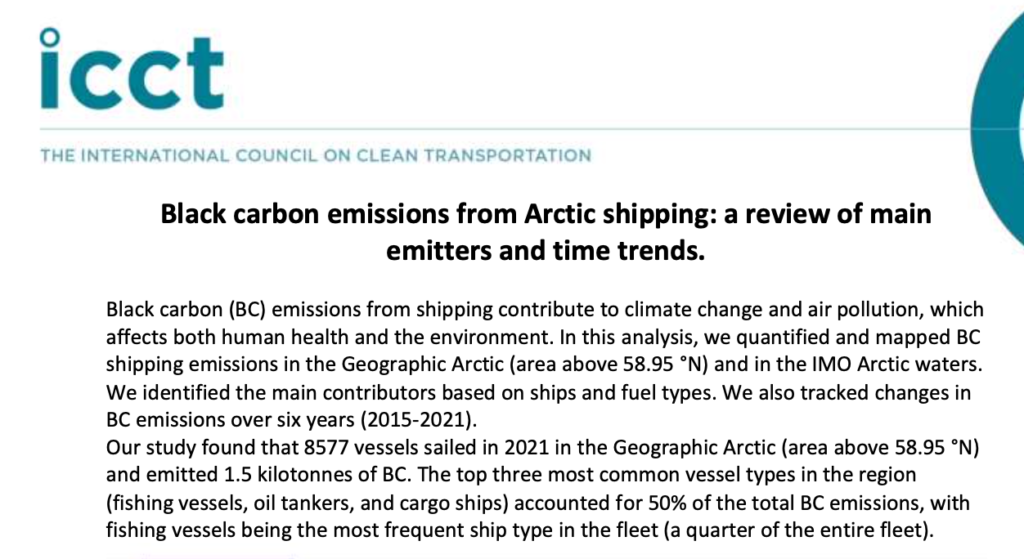
Black carbon (BC) emissions from shipping contribute to climate change and air pollution, which affects both human health and the environment. In this analysis, we quantified and mapped BC shipping emissions in the Geographic Arctic (area above 58.95 °N) and in the IMO Arctic waters.
Clean Arctic Alliance Briefing on Agenda Item 6 of PPR10: Reduction of the impact on the Arctic of Black Carbon Emissions from International Shipping
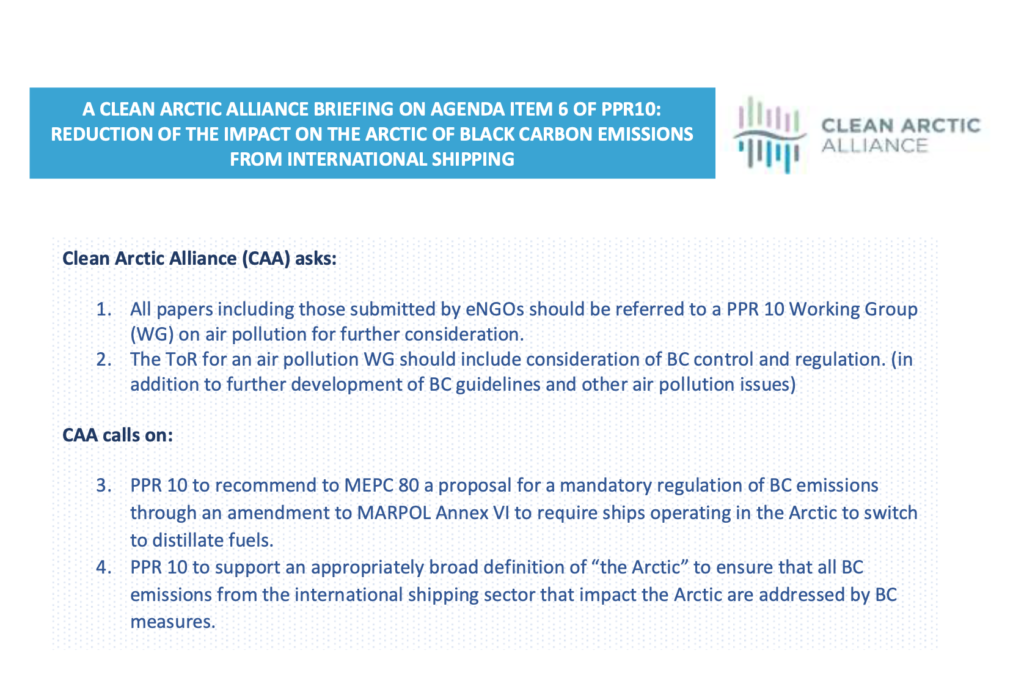
PPR 10 to recommend to MEPC 80 a proposal for a mandatory regulation of BC emissions through an amendment to MARPOL Annex VI to require ships operating in the Arctic to switch to distillate fuels.
In Celebration of the Life of Verner Wilson III

It is with profound sadness that we remember and celebrate the life of Verner Wilson III. Verner passed away unexpectedly, aged 36, on Thursday 23rd March, in his home town of Dillingham, Alaska.
Clean Arctic Alliance Open Letter to IMO Secretary General Lim
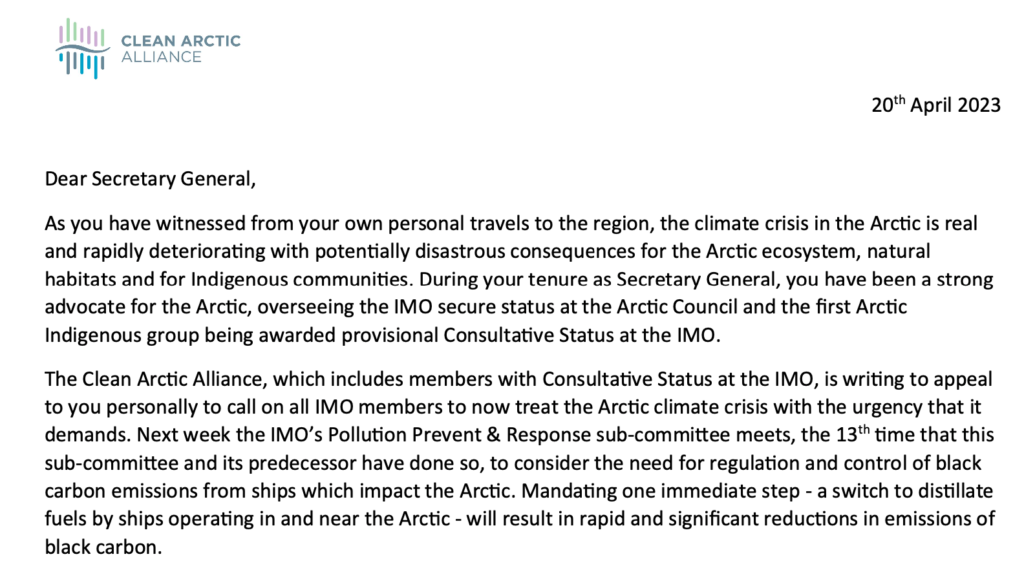
The Clean Arctic Alliance appeals writes to IMO Secretary General Kitack Lim to ask him to personally call on all IMO members to now treat the Arctic climate crisis with the urgency that it demands.
Infographic: How to regulate and control black carbon emissions from shipping

In a context where black carbon emissions have doubled in IMO Arctic between 2015 and 2021, this infographic depicts how this harmful pollutant for the environment, the climate, and people, could be controlled and regulated. It also looks at the geographic scope for measures so impact from shipping can be reduced and emissions in and near the arctic are also addressed and makes recommendation for action for IMO Member States.
PPR10 Side Event: Black carbon emissions from ships impacting the Arctic
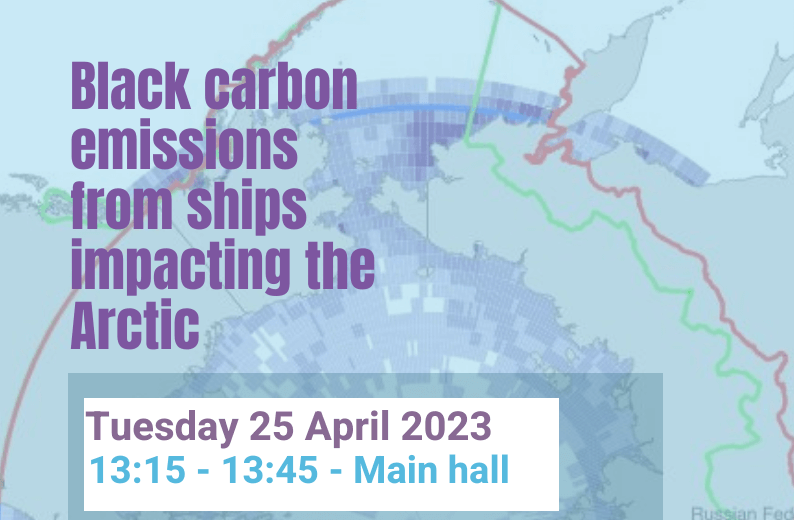
A PPR 10 Side Event hosted by Friends of the Earth International and Pacific Environment, and organised by the Clean Arctic Alliance.
China Dialogue: Black carbon: The ‘low-hanging fruit’ for cleaner shipping
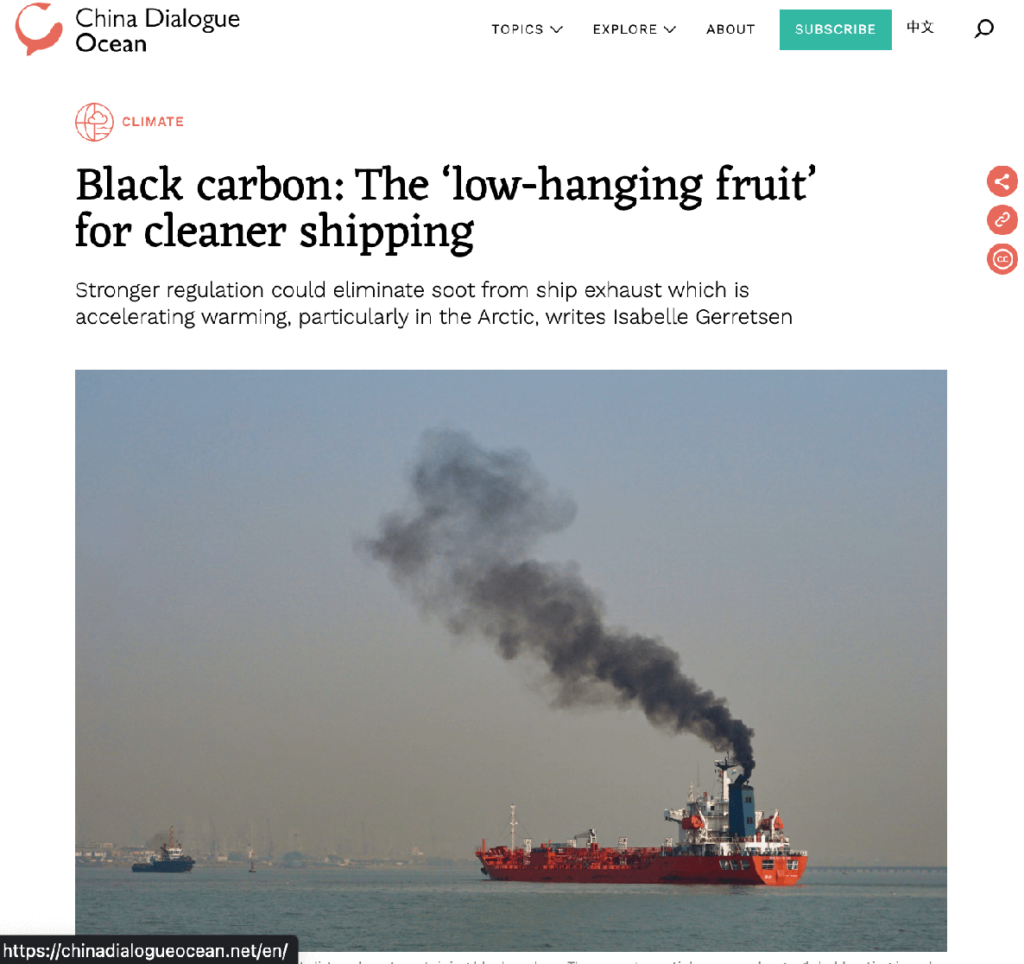
Stronger regulation could eliminate soot from ship exhaust which is accelerating warming, particularly in the Arctic, writes Isabelle Gerretsen

